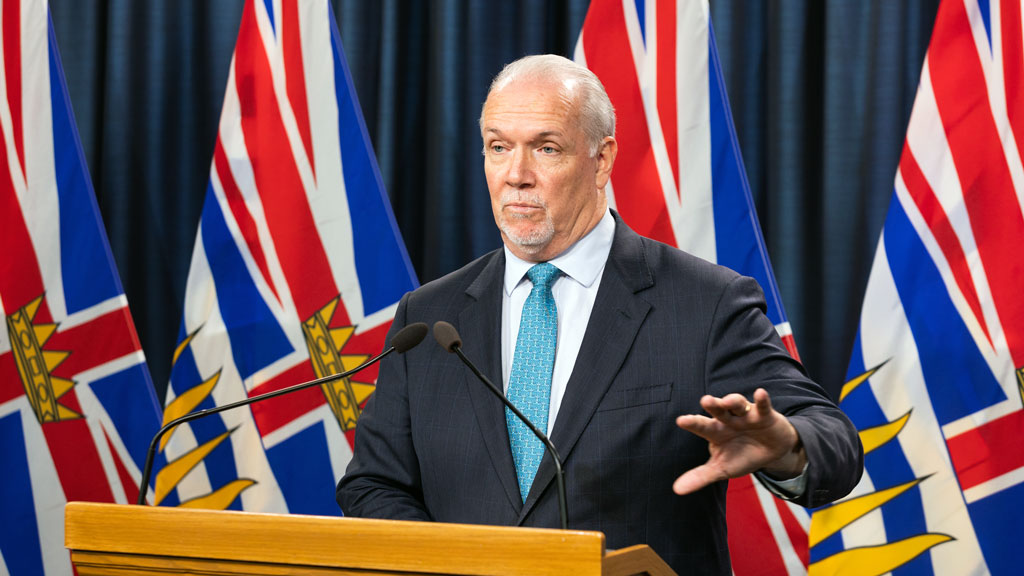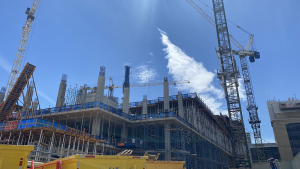Construction leaders in B.C. are pushing back against proposed changes to the Freedom of Information and Protection of Privacy Act (FIPPA), arguing it will make public spending and procurement less transparent.
The BC Construction Association (BCCA) and the Independent Contractors and Businesses Association (ICBA) have joined with the BC Freedom of Information and Privacy Association (FIPA) to push the province to address transparency concerns.
FIPA argues the bill makes getting information via freedom of information (FOI) requests more difficult. The bill would implement a $25 fee to access FOI applications. FIPA added the bill exempts several high level officials from FOI requests, does not address recommendations made by all-party special committees and continues to allow the legislature to be exempt of FIPPA laws.
Chris Atchison, president of the BCCA, explained the association has been committed for 20 years to advancing the core principles of fair, open and transparent procurement as reflected in the Capital Asset Management Framework (CAMF).
“The public sector, which purchases nearly 25 per cent of the construction services underway in B.C. at any given time, worth tens of billions of dollars, continues to recommend rather than require adherence to CAMF and has not made any significant improvements in construction procurement practises,” said Atchison. “In fact, the trend is moving in the wrong direction, as the career experts retire and – sometimes willingly, sometimes unknowingly – their replacements do not follow best practises.”
This has led the BCCA and its regional associations to begin using FOI requests they believe should be publicly posted as a matter of rote.
“This has led us to look more closely at FIPPA and the tools we have at our disposal to improve transparency,” said Atchison. “And that has lead to our signature to withdraw Bill 22. The B.C. construction industry needs more transparency and access to government, not less.”
Jordan Bateman, ICBA’s vice-president of communications and marketing, explained construction companies, like all taxpayers, rely on media, associations and individuals to hold government accountable for their actions.
“Whenever a taxpayer wants to investigate how their taxes are being used by public bodies, FOI is a critical research resource,” he said. “Whenever a business seeks equitable contracts and open procurement from public bodies, FOI provides an opportunity for them to address a lack of transparency. Whenever a business wishes to see if – and why — their competitors or industry are receiving government funds, FOI grants them the knowledge to make informed decisions.”
Jason Woywada, executive director of FIPA, argued while it is obvious that changes to transparency laws impact the work of the media, it also impacts the level of trust people and businesses have for government.
This is especially true during procurement.
“When bids are being put to public bodies and are being reviewed, they must be done so fairly and equitably,” said Woywada. “The only way they can trust the process is if it is transparent.”
He added the construction sector should not have to rely on FOI requests and more work should be done to proactively disclose information.
Premier John Horgan has defended the bill saying it is intended to speed up records requests and insisted that the $25 fee is not set in stone.
“Other jurisdictions have fees,” Horgan said to reporters. “We felt it was important for executive council, for cabinet, to be able to put in place a fee if we felt it would be necessary after debate in the legislature, which has been vigorous, as everyone would expect.”
Alberta charges the highest application fee of any province at $25 per request.
Horgan explained the NDP’s political rivals have been filing thousands of record requests each year, slowing the system down.
Katy Fairley, an independent consultant with Fairley Strategies, who focuses on improving project delivery for owners, explained the proposed changes are not trivial.
“Putting fees on FOI requests for a lot of these construction companies who want information – $25 is not a nothing fee,” said Fairley. “That is substantial and it’s going to hinder people and companies wanting to submit those.”
Fairley added she believes more consultation could have been done to improve the legislation.





Recent Comments
comments for this post are closed